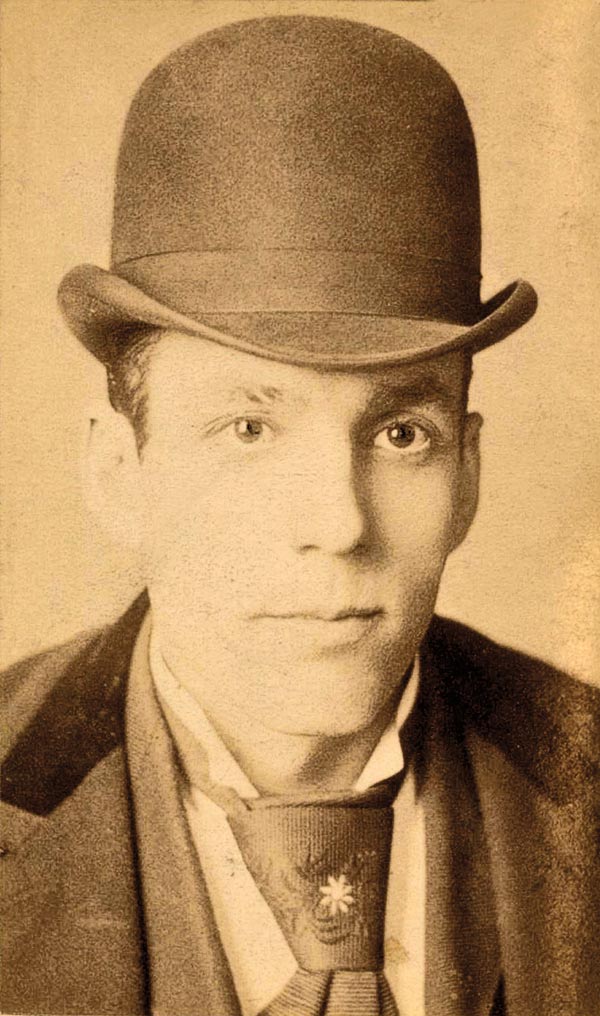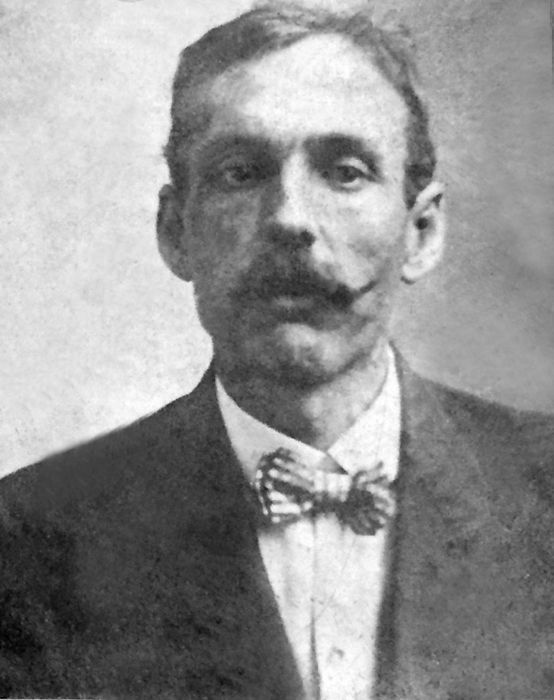
The Gentleman Bandit’s Shadow: Marion Hedgepeth, Betrayal, and the Fading Frontier
The American West, a landscape forged in the crucible of ambition, violence, and the relentless march of progress, bred a peculiar strain of notoriety. Among the dusty trails and burgeoning railroad lines, figures emerged who etched their names into legend, often with the blood of others. Jesse James, Billy the Kid, the Daltons – their names resonate with a romanticized defiance. Yet, lurking in their shadows, and at times manipulating the very narratives that defined them, were lesser-known but equally dangerous men. One such figure was Marion Hedgepeth, a man whose quick wit and deadly aim earned him the moniker "The Gentleman Bandit," but whose most enduring legacy might be the calculated betrayal that led to the demise of a different, infamous outlaw.
Hedgepeth’s story is not merely one of train robberies and shootouts; it’s a fascinating study of opportunism, intelligence, and the grim realities of a changing frontier where loyalty was a luxury and survival was paramount. Born in Missouri in 1856, Hedgepeth came of age in a region still reeling from the scars of the Civil War, a fertile ground for lawlessness and the rise of banditry. The economic upheavals, the lingering animosities, and the vast, untamed expanses provided ample opportunity for young men with a penchant for adventure and a disregard for the law to carve out their own destinies, however fleeting.
Unlike many of his contemporaries, who were often depicted as rough-hewn and uneducated, Hedgepeth possessed a sharp mind and a surprisingly refined demeanor. He was reportedly well-dressed, articulate, and intelligent, traits that earned him the "Gentleman Bandit" tag. This cultivated facade, however, masked a cold pragmatism and a ruthless streak that made him exceptionally dangerous. He was a meticulous planner, preferring to outsmart his targets rather than relying solely on brute force, though he was never shy about resorting to violence when necessary.

His criminal career began to take shape in the late 1870s and early 1880s, primarily in the Missouri, Kansas, and Arkansas territories. He wasn’t a solitary wolf; like most successful outlaws of the era, he operated with a gang, often shifting allegiances and forming new alliances as circumstances dictated. His preferred targets were the symbols of the burgeoning industrial age: banks and, more lucratively, trains. The railroads, stretching like veins across the continent, carried not only passengers but also vast sums of money, making them irresistible prey for daring bandits.
Hedgepeth’s gang was involved in several high-profile train robberies. One notable incident occurred in 1883 when his crew held up a Rock Island Line train near Glendale, Missouri. The robbery was executed with a precision that became Hedgepeth’s hallmark, netting a substantial haul and further cementing his reputation as a cunning and audacious criminal. Newspaper accounts of the era often painted him as a formidable adversary, a man who could blend into polite society one moment and lead a daring raid the next. One contemporary lawman reportedly described him as "one of the most intelligent and dangerous men I ever pursued, a true master of disguise and deception."
However, it was not his prowess as a train robber that would ultimately secure his place in the annals of Wild West history, but rather his pivotal role in the final chapter of another infamous outlaw: Robert Ford, the man who shot Jesse James. After killing James in 1882 for a paltry reward and a dubious pardon, Ford found himself a pariah, forever branded a coward and a traitor. He attempted to capitalize on his notoriety, touring in a theatrical show that reenacted James’s murder, but public opinion remained firmly against him. He eventually drifted west, settling in the burgeoning silver boomtown of Creede, Colorado, where he ran a saloon and gambling hall.
By the late 1880s, Marion Hedgepeth had found himself in a familiar predicament for an outlaw: behind bars. Arrested for various crimes, he was facing a lengthy sentence in the Missouri State Penitentiary. It was from this vantage point, with his own future looking bleak, that Hedgepeth saw an opportunity to leverage his knowledge for a reduced sentence. He knew that Bob Ford, despite his ignominious reputation, was still a wanted man, with a price on his head for earlier crimes committed in Missouri.
Hedgepeth contacted the authorities, specifically Captain Sam Hildebrand of the Pinkerton Detective Agency (or, in some accounts, local Missouri law enforcement officials), offering a tantalizing proposition: he would provide the precise whereabouts of Bob Ford in Creede, Colorado, along with details of Ford’s daily routine and vulnerabilities, in exchange for clemency or a lighter sentence. The authorities, ever keen to close old cases and bring notorious figures to justice, agreed to the arrangement.
This act of betrayal, cold and calculated, set in motion the events that would lead to Ford’s death. Armed with Hedgepeth’s intelligence, lawmen and bounty hunters converged on Creede. On June 8, 1892, Bob Ford was in his saloon when Edward O’Kelley, a disgruntled acquaintance (and reportedly a man with his own scores to settle with Ford), walked in and shot him dead with a shotgun. O’Kelley was arrested, tried, and initially sentenced to life in prison, though he was later controversially pardoned.
While Hedgepeth did not pull the trigger, his role as the informant was crucial. His betrayal of Ford was a stark reminder of the shifting loyalties and cutthroat nature of the outlaw world. It also underscored the irony of the situation: the "Gentleman Bandit," himself a notorious criminal, helped bring down the man who had infamously betrayed a legend. For his cooperation, Hedgepeth did indeed receive a reduction in his sentence, a testament to the pragmatic justice system of the era, where information was a valuable commodity.
Upon his release from prison in the mid-1890s, Hedgepeth attempted to resume his life of crime, but the landscape of the West was changing rapidly. The days of the open range and unchallenged banditry were fading. Law enforcement was becoming more organized and effective, and the advent of new technologies, such as telegraphs and improved transportation, made it harder for outlaws to escape justice.

Despite these changes, Hedgepeth remained true to his nature. He quickly reassembled a gang and continued his criminal activities, primarily targeting trains and stagecoaches. However, his luck began to run out. In 1897, he was involved in another train robbery, this time near Round Pond, Arkansas. The robbery was a failure, leading to a fierce shootout with lawmen. Hedgepeth was captured once again and sentenced to a lengthy term in the infamous Missouri State Penitentiary, the same institution where he had brokered his earlier deal.
Life in the penitentiary was harsh and unforgiving. The "Gentleman Bandit" facade was stripped away, replaced by the grim reality of prison life. On December 31, 1909, Marion Hedgepeth, ever the defiant spirit, attempted an escape. During the desperate breakout attempt, he was shot and killed by a prison guard. He was 53 years old.
Marion Hedgepeth’s story is a complex tapestry woven with threads of intelligence, cunning, and ruthless opportunism. He was a product of his time, a man who navigated the treacherous waters of the post-Civil War American West with a unique blend of charm and violence. His "Gentleman Bandit" moniker speaks to a certain charisma and an attempt at sophistication in a brutal world, but his actions, particularly the cold betrayal of Bob Ford, reveal a deeper, more calculating nature.
He stands as a significant, albeit often overlooked, figure in the pantheon of Wild West outlaws. His life intersected with the legends, influencing their fates and shaping the broader narrative of an era. Hedgepeth’s story serves as a poignant reminder that the Wild West was not merely a stage for heroic gunfighters and noble lawmen, but a complex arena where ambition, survival, and the shifting sands of loyalty dictated the rise and fall of even the most cunning of men. As the frontier closed and the modern age dawned, men like Marion Hedgepeth, who thrived on chaos and defied order, found themselves increasingly out of time, their violent ends serving as the final, somber chords in the fading symphony of the Wild West.


